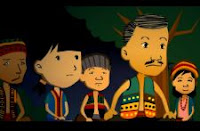The African Commission on Human and Peoples' Rights (ACHPR) and International Work Group for Indigenous Affairs (IWGIA) recently released a manual on the promotion and protection of the rights of Indigenous populations/communities through the African Human Rights System.
According to IWGIA, over the past 10 years, ACHPR "has taken bold steps to understand, expound and address the human rights situation of indigenous communities in Africa. The African Commission’s Working Group on Indigenous Populations/Communities has been the institutional anchor for these efforts... The manual is designed as a training tool for indigenous rights activists in Africa. It is also intended to be a practical instrument for use in the training of judicial officers, lawyers, media activists and government officials on indigenous rights in Africa. The full use of this manual will only be realized if it is used to enhance the capacity of indigenous groups to constructively and sustainably engage with the African human rights system."
The manual is available for download or purchase (including in French) here.



.jpg)





.jpg)


















